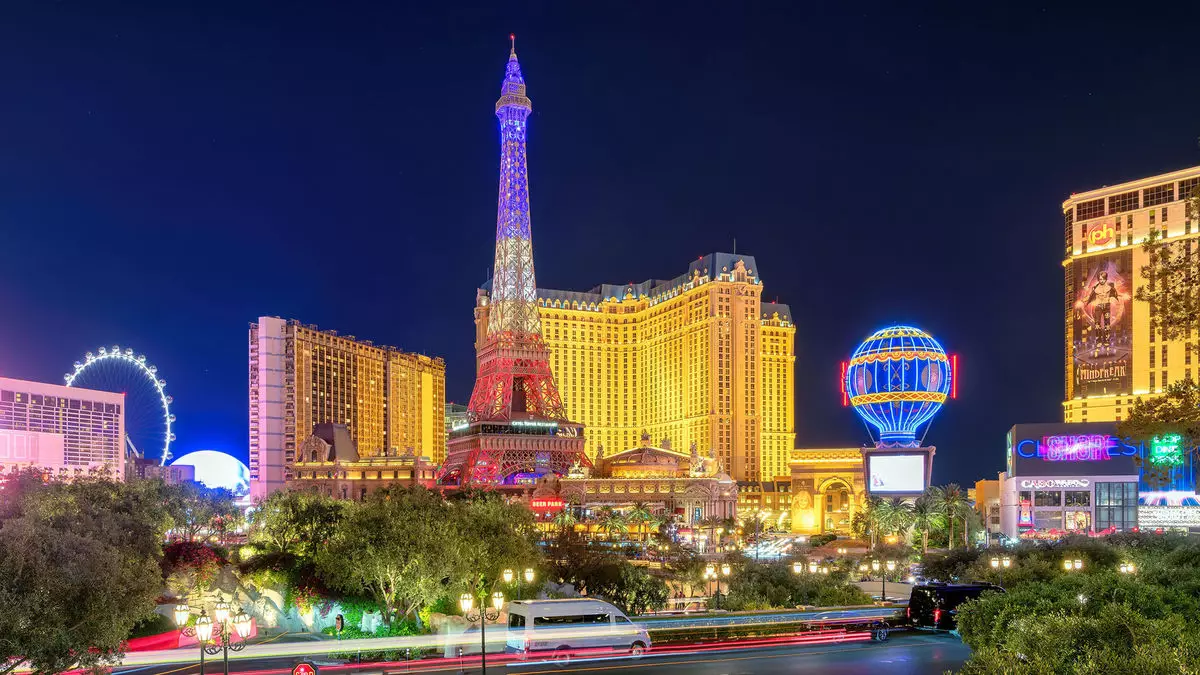Las Vegas, long celebrated as America’s top entertainment and tourism hub, is experiencing one of its most severe downturns in recent history. Official data indicates significant declines in hotel performance metrics, with occupancy rates plummeting nearly 15% in June and worsening in July. Such figures are alarming, not only because they mark a departure from the city’s usual resilience but also due to their implications on the broader hospitality industry. What stands out is that Las Vegas’s struggles are pivotal enough to influence US-wide hotel performance, a testament to its economic importance. This downturn is emblematic of an industry grappling with external pressures that are largely beyond local control—most notably waning international visitation and economic uncertainty.
Unlike past cyclical downturns that often stem from local or regional factors, the current decline seems rooted in macroeconomic issues and global dynamics, which have severely dampened discretionary spending. The 6.5% decrease in visitor volume from the same period last year is particularly telling. The city, traditionally powered by international tourists, especially those from Canada and other parts of North America, is suffering from a sharp decline in overseas arrivals. This dip in international visitors is accentuated by rising travel restrictions, dollar fluctuations, and geopolitical tensions, which together deter international travelers from choosing Vegas as their destination. Consequently, the anticipated revenue streams are shrinking, directly impacting hotel occupancy and revenue per available room (RevPAR).
Economic and Global Factors Fueling the Meltdown
The broader economic landscape paints a picture of caution and hesitation. Consumer confidence, a critical component for entertainment-driven destinations like Vegas, is at a low ebb. The fear of inflation, rising interest rates, and economic instability have caused many potential visitors to hold back on travel plans. As Steve Hill, CEO of the Las Vegas Convention and Visitors Authority (LVCVA), points out, these are not unique challenges to Las Vegas but reflect a nationwide trend of economic headwinds dampening leisure demand.
Adding to the confusion is the clear impact of geopolitical shifts which have affected international inbound traffic. Although the city’s reliance on international visitors has lessened somewhat over the years, declines from key regions such as Canada have nonetheless had a significant impact. Data shows that international arrivals slowed markedly in June after a relatively steady start to 2025. This pattern suggests that Vegas’s international market, once a robust pillar of growth, is now experiencing a slowdown that is difficult to reverse without a macroeconomic turnaround.
From an industry perspective, some analysts argue that these declines are within expected seasonal variations; however, that analysis oversimplifies the reality. The sharp drops in occupancy and RevPAR underscore a more profound external shock. One cannot ignore the fact that Vegas is currently operating in a period of heightened uncertainty, where even previously resilient market segments remain cautious despite the city’s reputation for adaptation and innovation.
Innovating in a Tough Market: Adaptive Strategies That Show Promise
In response to these challenges, Las Vegas properties are deploying a variety of aggressive marketing and promotional strategies to attract local and regional visitors, with a focus on offering value and flexibility. Resorts are leaning into creative packages and perks—such as waiving resort fees, offering complimentary parking, and providing substantial dining credits—that appeal to budget-conscious travelers. These tactics reflect an understanding that in times of economic uncertainty, perceived value can be the difference between a booked hotel and an empty one.
Resorts World Las Vegas’s “All Resort, No Fees” package exemplifies this approach. By eliminating unexpected costs and enhancing the guest experience through added amenities, the property aims to stand out amidst softening demand. Such initiatives not only bolster occupancy but also cultivate a sense of goodwill among visitors, particularly local and regional guests who are more sensitive to price and convenience.
Moreover, properties are expanding daytime activity offerings—happy hours, pool day passes, and curated lunch menus—to maximize revenue during non-peak hours and encourage longer stays. These tactical shifts are a testament to the resilience and flexibility of the Vegas hospitality industry. It reinforces the mindset that while revenue might be temporarily suppressed, maintaining a strong brand presence and enticing visitors through innovative packages can secure future growth.
Looking Ahead: Can Vegas Rebound?
Despite the current hardships, industry insiders remain cautiously optimistic about the city’s near-term future. The upcoming fall and winter seasons are expected to feature a resurgence fueled by large conventions, trade shows, and business events. These segments, less sensitive to immediate economic swings, could serve as a catalyst for recovery. The increase in convention attendance—up over 10% in May—signals renewed confidence among the business community and offers a vital lifeline for the broader hospitality sector.
Leadership in the Vegas tourism ecosystem seems committed to rebound efforts. The LVCVA’s increased marketing spend indicates a resolve to counteract the softening demand by promoting the city’s diverse offerings and emphasizing affordability. However, it remains to be seen whether these measures can fully offset the broader economic headwinds. What is certain is that Vegas’s strength has always been its ability to adapt, innovate, and market itself as an entertainment and leisure destination for all budgets.
In essence, Las Vegas’s current crisis is a stern test of resilience. While the headlines speak to decline, they also reveal a city that is responding with ingenuity and strategic flexibility. The path to recovery may be incremental, but Vegas’s reputation and ability to pivot suggest that it will not stay down for long. With the right mix of targeted marketing and operational agility, the entertainment capital of the world is poised—yet again—to turn challenges into opportunities.

